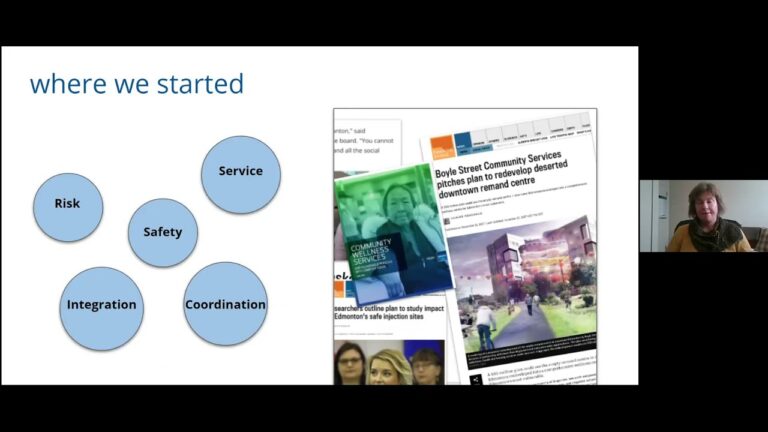
The urban environment presents a unique set of challenges for mental health. With its fast-paced lifestyle, overcrowded spaces, and constant stimulation, urban living can have a profound impact on individuals’ mental well-being. From the daily stressors of commuting and work-related pressures to the lack of green spaces and social isolation, urban residents face a range of mental health concerns. As the world becomes increasingly urbanized, it is crucial to explore and understand the complex interplay between urban environments and mental health in order to develop effective strategies and interventions. This article delves into the various factors that contribute to urban mental health issues, examines the consequences of living in an urban setting on mental well-being, and discusses potential solutions to promote and protect mental health in urban communities. By addressing the specific challenges faced by urban dwellers, we can strive towards creating cities that are conducive to positive mental health outcomes for all residents.
- Sue urban mental health refers to the specific challenges and issues related to mental health within urban environments. Urban areas, characterized by population density, high levels of noise, pollution, and stress, can have a significant impact on mental well-being.
- Factors such as overcrowding, limited access to green spaces, lack of community support systems, and higher levels of crime and violence can contribute to increased levels of stress, anxiety, and depression among individuals living in urban settings. These factors can also impact the availability and quality of mental health services in urban areas.
- Addressing the mental health needs of urban populations requires targeted interventions and policies. Governments and local authorities should invest in improving access to mental health services, promoting urban planning that prioritizes mental well-being (e.g., creating parks, community centers), and implementing community-based initiatives that combat social isolation and promote mental health awareness and support in urban communities.
In Florida, who is the target of the 17-year-old teacher’s attack?
Contenidos
- In Florida, who is the target of the 17-year-old teacher’s attack?
- Did the Florida teacher’s aide experience a violent attack after confiscating the student’s Nintendo Switch?
- What is the reason for Florida teachers not going on strike?
- Overcoming the Stigma: Empowering Urban Communities to Prioritize Mental Health
- Addressing the Urban Mental Health Crisis: Strategies for Seeking Justice through Legal Intervention
In Florida, a 17-year-old special needs student stands accused of violently attacking a teacher’s aide at Matanzas High School. The incident unfolded after the paraprofessional confiscated the student’s Nintendo game, resulting in the teacher’s aide being rendered unconscious.
In a distressing incident at Matanzas High School in Florida, a 17-year-old special needs student has been accused of a violent attack on a teacher’s aide. The altercation occurred after the paraprofessional took away the student’s Nintendo game, leading to the teacher’s aide being rendered unconscious.
Did the Florida teacher’s aide experience a violent attack after confiscating the student’s Nintendo Switch?
A 17-year-old student in Florida is facing charges for allegedly assaulting a teacher’s aide who confiscated his Nintendo Switch. The incident took place at a school in Flagler County, and the staff member involved has been identified as Joan Naydich. According to Sheriff Rick Staly, the attack was shocking. Details of the assault, as well as the extent of Naydich’s injuries, have not been disclosed. The incident raises concerns about student aggression and the safety of school staff.
A 17-year-old student in Florida is facing charges for allegedly assaulting a teacher’s aide who confiscated his Nintendo Switch. The incident, which occurred in Flagler County, has raised concerns about student aggression and the safety of school staff. Details of the attack and the extent of the staff member’s injuries have not been disclosed. Sheriff Rick Staly described the incident as shocking.
What is the reason for Florida teachers not going on strike?
Florida teachers in the United States have been unable to go on strike since 1968 due to the enactment of the Public Employees Relations Act (PERA). This legislation introduced collective bargaining and unionization for public employees, including teachers, but explicitly prohibited them from engaging in strikes. As a result, teachers in Florida remain unable to utilize this common bargaining tactic to advocate for their rights and demands, which has led to ongoing debates regarding their working conditions and compensations.
Florida teachers have been unable to go on strike since 1968 due to the enactment of PERA. This has led to ongoing debates about their working conditions and compensations, as they are unable to utilize one of the most common bargaining tactics available to advocate for their rights and demands.
Overcoming the Stigma: Empowering Urban Communities to Prioritize Mental Health
In today’s fast-paced urban environments, where stress and pressure often take their toll, addressing mental health has become essential. Unfortunately, there remains a pervasive stigma attached to seeking help for mental health issues, which can hinder individuals from prioritizing their well-being. Overcoming this stigma entails empowering urban communities to open conversations about mental health, fostering acceptance, and providing accessible resources. By promoting education and awareness, encouraging the use of support networks, and ensuring affordable care, we can empower individuals to take control of their mental health and create a community that prioritizes well-being for all.
It is crucial to address mental health in fast-paced urban environments. However, stigma remains a barrier to seeking help. To overcome this, urban communities must have open conversations, foster acceptance, and provide accessible resources. Promoting education, utilizing support networks, and ensuring affordable care empower individuals to prioritize their mental health and create a community that values well-being for all.
Addressing the Urban Mental Health Crisis: Strategies for Seeking Justice through Legal Intervention
Addressing the urban mental health crisis requires a multifaceted approach, including strategies for seeking justice through legal intervention. In many urban areas, individuals with mental health conditions face significant challenges in accessing appropriate care and support. Legal action can play a crucial role in advocating for their rights and bridging the gaps in the system. This can involve filing lawsuits to ensure equal access to healthcare, advocating for improved mental health policies, and supporting efforts to divert individuals to treatment rather than incarceration. By utilizing legal interventions, cities can strive towards a more just and equitable mental health system for urban populations.
Addressing the urban mental health crisis necessitates a multifaceted approach that includes legal intervention. By utilizing legal actions such as lawsuits, advocating for improved policies, and supporting treatment diversion efforts, cities can work towards a more equitable mental health system for urban populations.
Addressing the issue of urban mental health through legal avenues such as lawsuits can have a profound impact on the well-being of individuals living in urban environments. By holding responsible parties accountable for neglecting mental health infrastructure and failing to provide adequate support, we are not only seeking justice for those affected but also promoting awareness and change at a societal level. It is essential for policymakers, urban planners, and mental health advocates to collaborate in order to create urban spaces that prioritize mental well-being. Ongoing research, public awareness campaigns, and legal initiatives play a crucial role in highlighting the urgency of addressing urban mental health. Through collective efforts, we can foster healthier and more equitable urban environments that promote the mental well-being and overall quality of life for all individuals residing in cities.




